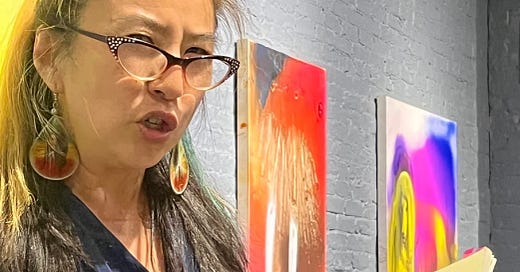Jiwon Choi said she was walking in Brooklyn’s storied Green-Wood Cemetery when the poem was “conjured in my head.”
One of the vanguard cemeteries of the 19th century “rural cemetery” movement, Green-Wood is a place of beauty and tranquility in the heart of Brooklyn busyness. It is an urban greenspace, a sanctuary for flora and fauna alike, and the “etern…
Keep reading with a 7-day free trial
Subscribe to How to Grow a Poem to keep reading this post and get 7 days of free access to the full post archives.



